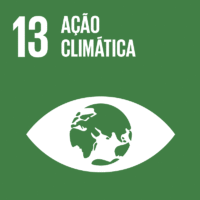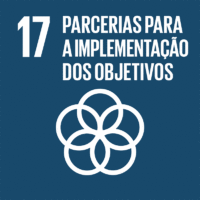Ciência_Iscte
Comunicações
Descrição Detalhada da Comunicação
Analyzing the political embeddedness of holistic and dialectic approaches to regenerative (post)development
Título Evento
Conférence sur la recherche interdisciplinaire et transdisciplinaire “Transition et Développement Durable"
Ano (publicação definitiva)
2021
Língua
Inglês
País
Bélgica
Mais Informação
Web of Science®
Esta publicação não está indexada na Web of Science®
Scopus
Esta publicação não está indexada na Scopus
Google Scholar
Esta publicação não está indexada no Overton
Abstract/Resumo
The regenerative approach to development treats natural and human processes as inherently linked, seeking to arrest and reverse both ecological degradation and loss of the cultural skills necessary for living in harmony with local environments. At the core of this approach is the promotion of community-led initiatives (CLIs) as a strategy for protecting or rebuilding the fabric of social life and ecosystems from the destructive impact of market pressures. Such initiatives have proliferated in recent decades as a constructive response to externalities of neoliberal globalization, which decreased the ability and disposition of public institutions to mediate new claims for the expansion of rights, redistribution of public goods and containment of corporate influence on policymaking.
Literature in the field indicates that, for segments of society affected by socio-economic exclusion, CLIs such as worker or producer cooperatives and alternative commercialization/consumption networks represent a way of mobilizing endogenous resources to meet basic needs in an autonomous way. Among more economically privileged groups, CLIs represent a way of building a “counter-culture”, oriented by post-materialist concerns, to that of the dominant market economy, in the form of initiatives such as community-supported agriculture networks, ecovillages and co-housing communities.
Social movements and initiatives promoting regenerative development have adopted a variety of master frames that can be included in two major categories: that include, among others, bioregionalism, and solidarity economy. It is possible to identify two major categories among these master frames:
- A “holistic” approach, based on deep ecology and the application of whole-systems design frameworks, inspired by patterns of inter-species cooperation observed in ecosystems, with the purpose of improving the resilience of social and natural systems. This includes permaculture and bioregionalism;
- A “dialectic” approach, based on a political economy approach to nature and social relations, that frames structural transformation through political means as a condition for regenerative development. Solidarity economy is a major example of this approach.
Scholarship in the field has identified a correlation between the “dialectic” approach and the class consciousness of the popular classes, but no clear connection between the “holistic” approach and that of more privileged classes. From the perspective of world system analysis, it is possible to identify a predominance of “holistic” master frames among regenerative development movements and initiatives in “core” industrialized countries, a predominance of “dialectic” frames in peripheral countries, and a coexistence and even hybridization in the semi-periphery.
This presentation mobilizes the concept of political embeddedness, as defined by Lemaître (2009), as well as social movement theory, to develop a conceptual framework aimed at understanding the relationship between the transformations in market and institutional regimes at the state level and the emergence of social movements and networks based on different approaches to regenerative development.
Agradecimentos/Acknowledgements
--
Palavras-chave
Sustainable Development,Sustainability Transitions,Regenerative Development,Community-led Initiatives,Solidarity Economy,Ecovillages,Transition Initiatives
Classificação Fields of Science and Technology
- Sociologia - Ciências Sociais
Registos de financiamentos
| Referência de financiamento | Entidade Financiadora |
|---|---|
| PTDC/SOC-SOC/2061/2020 | Fundação para a Ciência e a Tecnologia |
Contribuições para os Objetivos do Desenvolvimento Sustentável das Nações Unidas
Com o objetivo de aumentar a investigação direcionada para o cumprimento dos Objetivos do Desenvolvimento Sustentável para 2030 das Nações Unidas, é disponibilizada no Ciência_Iscte a possibilidade de associação, quando aplicável, dos artigos científicos aos Objetivos do Desenvolvimento Sustentável. Estes são os Objetivos do Desenvolvimento Sustentável identificados pelo(s) autor(es) para esta publicação. Para uma informação detalhada dos Objetivos do Desenvolvimento Sustentável, clique aqui.

 English
English




